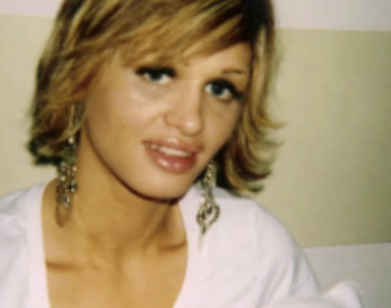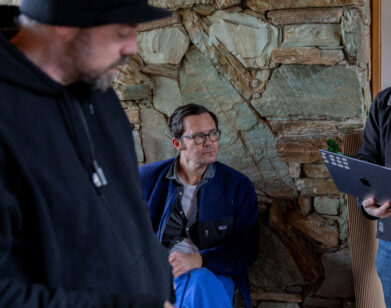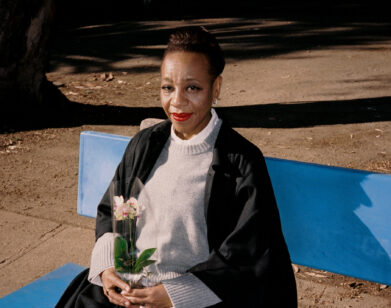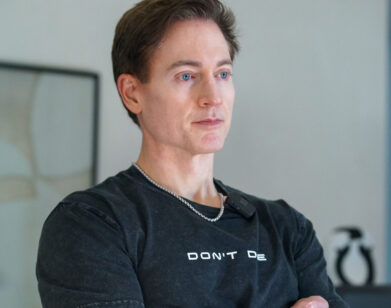Film!
Nicola Coughlan and Ariana DeBose on Breaking Through in Your 30s
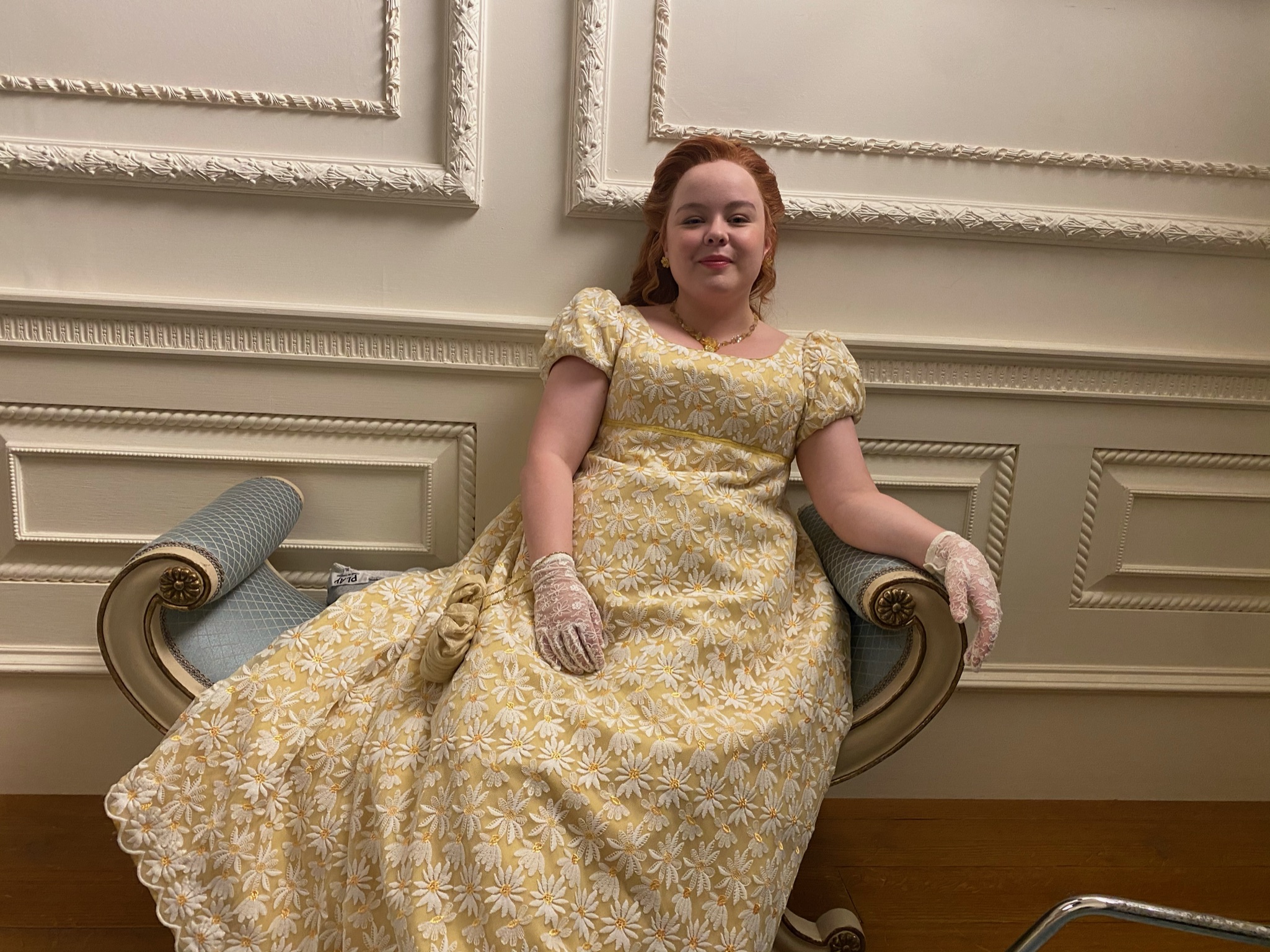
All photos courtesy of Nicola Coughlan.
Bridgerton, Netflix’s runaway hit, is back. The second season of the Regency-era bodice ripper dropped on March 25, offering viewers a new dose of the intrigue, sexual tension, and technicolor ballgowns that we’ve come to crave. A lot has changed in season two—new love interests and, disappointingly, less sex—but one mainstay is Nicola Coughlan, who continues to captivate viewers with her quiet wit and affable charm as Penelope Featherington. The Irish actor made her acting debut as Clare Devlin in Derry Girls, a coming-of-age dramedy set during The Troubles in ’90s Northern Ireland. For the 31-year-old actor, who was working retail just a few years ago, life seems to have changed overnight. One person who understands that feeling is Ariana DeBose, who, despite her Tony Award-winning performance in Hamilton, and her recent Oscar win for Best Supporting Actress (she is the award’s first openly queer POC winner), still feels like the same awkward girl from North Carolina. Below, the pair hunker down for a chat about about big breaks—what changes, and what stays the same.
———
ARIANA DEBOSE: Hi, cutie.
NICOLA COUGHLAN: How are you doing?
DEBOSE: I’m so good. That is such a nice flat, where are you?
COUGHLAN: Oh, thank you! This is my flat in London.
DEBOSE: I’m looking for a flat in London. What neighborhood do you live in?
COUGHLAN: I live in Hackney. I love it because there are a lot of actors around here, and it feels like a little village sort of. Are you wearing your Hamilton hoodie?
DEBOSE: It is!
COUGHLAN: When I found out you were in the ensemble, I was like, “Ohhh my god!” I used to wear a Hamilton hoodie to set because I so intensely adore the show. What a thing to be a part of! What was that like?
DEBOSE: I’m going to answer this question, and then I’m going to interview you. It probably feels a little bit like being in Bridgerton, to be honest. It becomes bigger than you. Hamilton was just bigger than us almost immediately. I watched my friends become rockstars, and I sort of got the benefit of being in the ensemble. Not that we didn’t get our own fandom, but I got to quietly do the work, do my thing, and support all the people I love. Plus, I got to be part of all these cool moments—like going to the White House and singing for President Obama. I’m sure you’ve had plenty of those with Bridgerton.
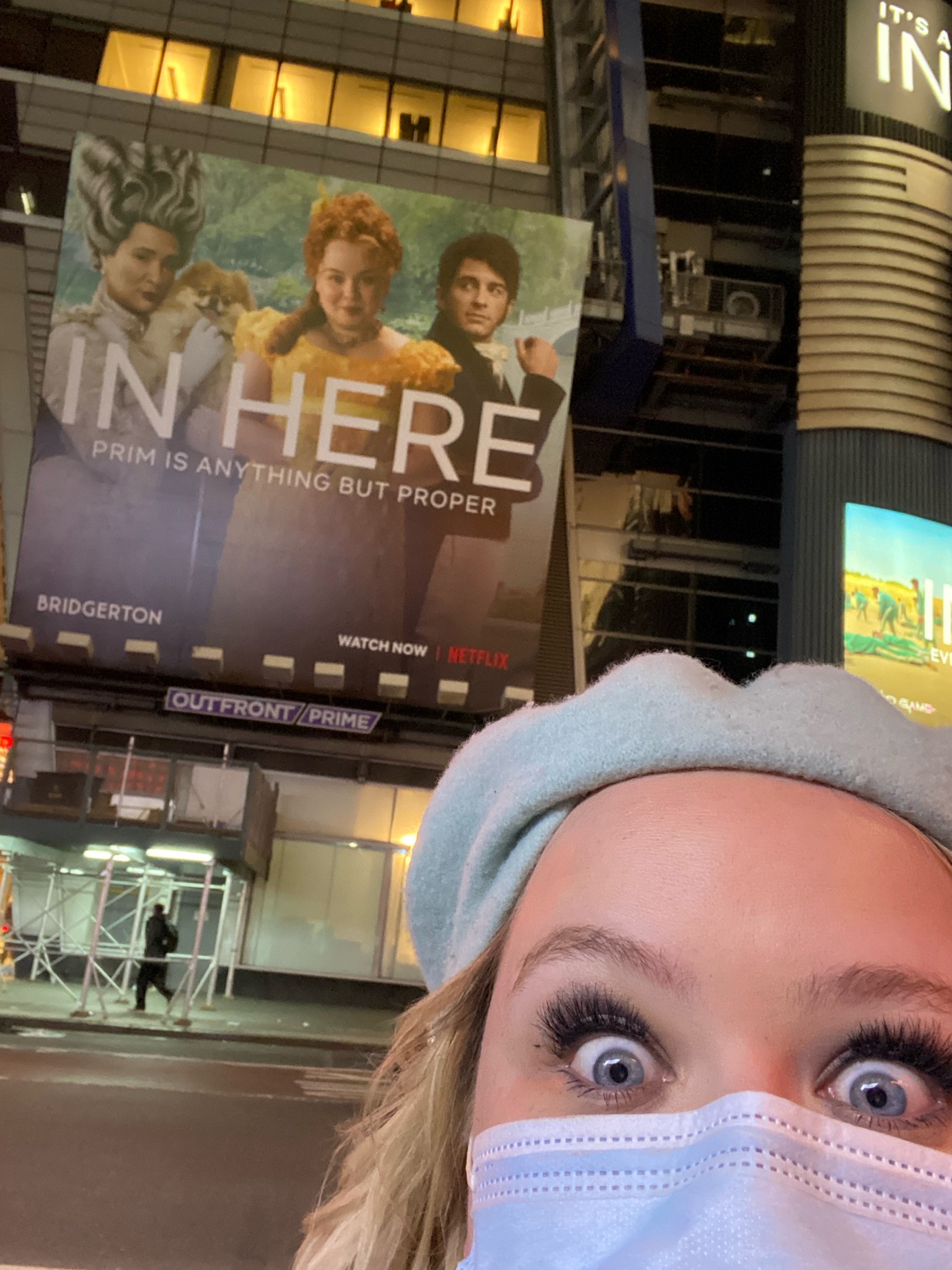
COUGHLAN: It’s wild, because with TV, you never know what you’re making—ever. There are so many moving parts. You don’t know what the music’s gonna be like, you don’t know how you’re appearing on screen.
DEBOSE: I felt that way about West Side Story—I just didn’t know. I was like, “I believe in the work, but is it good? People seem to like it. What’s the impact? What are people talking about? What have we birthed?” It’s fascinating.
COUGHLAN: [With] theater—even Broadway or the West End—it’s so much smaller. It’s this little shared experience with the audience. With film, when it’s done, it’s done. You can’t be like, “Okay, I’ll do something different tomorrow night.”
DEBOSE: There’s no fixing it!
COUGHLAN: I read that you didn’t want to audition for West Side Story?
DEBOSE: Well, yes and no. I didn’t feel like I was going to be a candidate, because I didn’t have 500,000 followers. I wasn’t “a name.” I was from Broadway, and typically when they make movie musicals in the States, they aren’t using theater talent, they’re using pop stars. The other thing was that the character, Anita, didn’t look like me—she’s not a Black woman.
COUGHLAN: Isn’t it mad? I talk about this with my female friends in the industry all the time, how dangerous imposter syndrome is. Imagine if you had let that little voice overpower you.
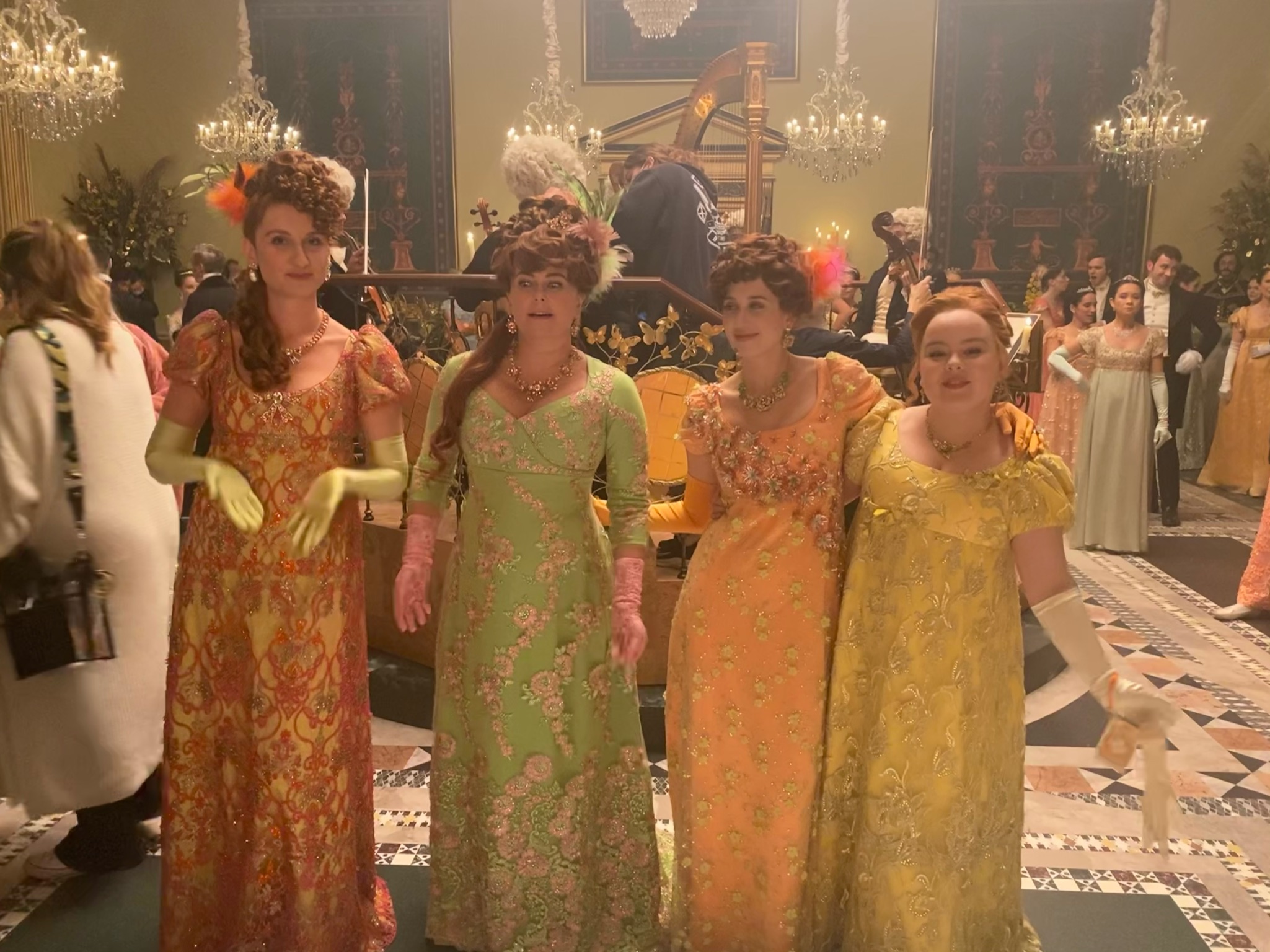
DEBOSE: Yeah, if I hadn’t walked into the audition.
COUGHLAN: It would’ve been a tragedy, for more people than just you. What’s it going to mean for young girls to see you on screen, and what you represent? If that stupid little voice in your head was just a little stronger, it would’ve deprived the world of that phenomenal performance. You just—I’m going to be all over you, just forgive me for it–have the quality of a true star. The way that you lit up that screen, the energy you have is completely luminous. I can’t imagine how intimidating it is—Rita Moreno [who played Anita in the 1961 version of West Side Story] was the best thing in that movie. To be like, “I’m going to step into this,” was that completely terrifying?
DEBOSE: Sure, because you can’t get away from it, you know? But it’s not something you focus on—you focus on the work. It’s like anyone who takes on Shakespeare—there’s always the thought of how the last person did it. It’s heavy! But also inspiring. I wanted to ask you about your audition process. Bridgerton is probably your best known work at the moment, but Derry Girls?! You came through in Derry Girls! So alive and funny, you’re such a surprising talent. I never knew where you were going. Did the little voice in your head ever get in the way of making either of these shows?
DEBOSE: That’s so lovely. It’s a mad thing isn’t it? When I got the script for Derry Girls, I was doing a theater show and touring around the UK. My agent called and I was like, “This is magic! This script is so good.” It jumped off the page. Also, seeing young girls written as so funny and so outrageous, doing all the dumb things we usually see boys doing, I was like, “This is gonna be so free!” We filmed the first season in 2017, and we made big choices, and kept wondering when the director was going to tell us to pull back, but we were given so much freedom. For people to receive it as they did was amazing. Irish audiences are very honest—if something isn’t good, they’ll say so. There were some jokes that really walked the line, and I was like, “Are people gonna find this offensive?”
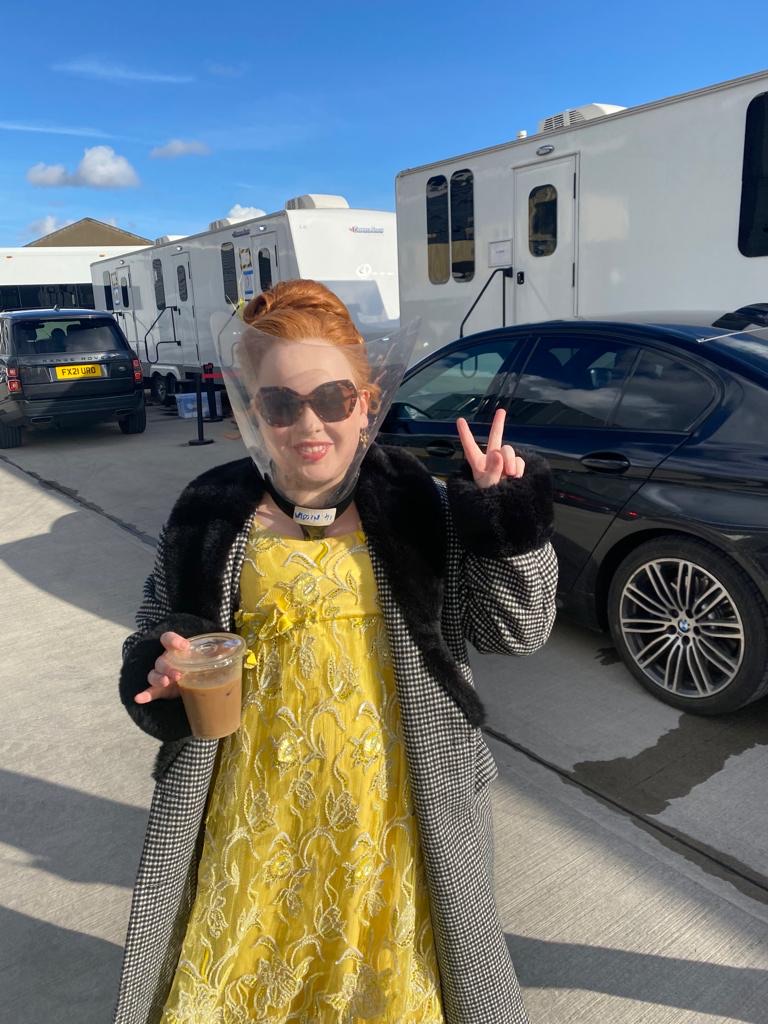
DEBOSE: Being from the States, I think it’s rare to make work about cultural or historical conflict that still reaches across party lines, quote unquote.
COUGHLAN: I think there’s an authenticity in the script that people really respond to. When we were making it I thought that it might get a niche following. When I was in New York not so long ago, the amount of people that came up to me like, “Oh my god! Derry Girls!”
DEBOSE: Are there parts of the job that make you scared or nervous?
COUGHLAN: It’s how much I care. I really, really care. Sometimes actors come in and do the work, nothin’ about it. Every actor is so different—some are classically trained, and some just walked in off the street. So everyone comes from different backgrounds, but I just really want to do a good job. This season of Bridgerton, there was a lot of challenging stuff to shoot. It’s quite terrifying to watch it back. You’re at the mercy of the edit and the music and all this stuff. I always care what people think. Do you?
DEBOSE: Oh, yeah. I try not to read things, and I’m really sensitive.
COUGHLAN: Sometimes it’s hard, because I’m such a sensitive person. It’s weird—the more known you become, the less people see you as a real person, and you go, “Oh, I am exactly the same person.”
DEBOSE: I am the same person! It’s the people around me that are changing, and people’s reactions to me are changing, not me. I’m still the same little girl from North Carolina who says awkward things sometimes. [laughs] But meh! That’s what it is!
COUGHLAN: It’s weird when people start to treat you differently. I was working retail five years ago. I don’t feel any different from that girl, but the situations around me have changed.
DEBOSE: Sure, I have cool opportunities and get dressed up, and people make me glamorous and gorgeous. It is fun, and that is a perk of the job, but it really doesn’t change your humanity.
COUGHLAN: Also, they say in childhood psychology that your personality is pretty much set by the time you’re three years old.
DEBOSE: Wait, what?!
COUGHLAN: Yeah, like how you’re going to react to the world, all of that stuff. When actors are big divas, I always think there was always a current of that in them.
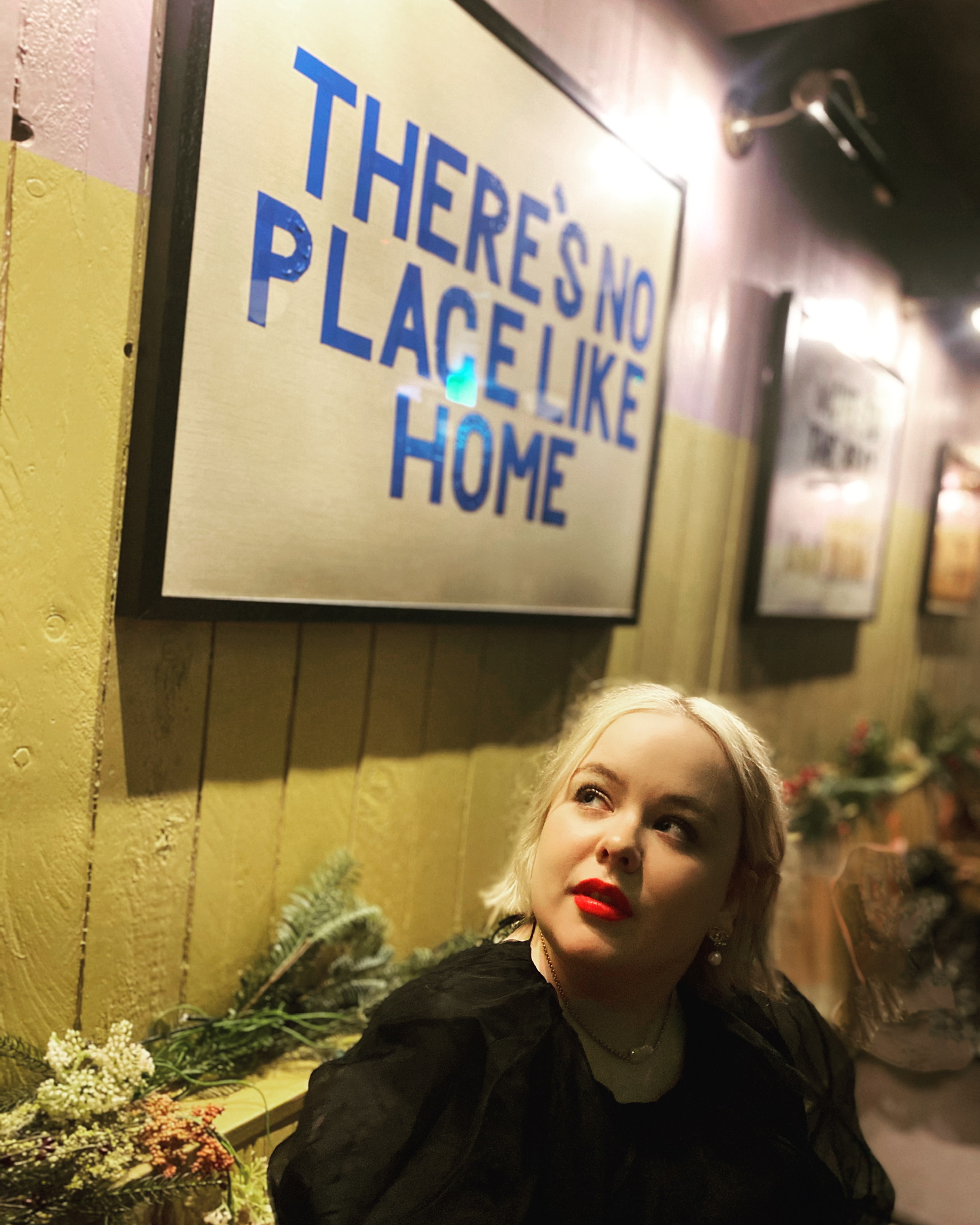
DEBOSE: Its hard to know how to react to these moments, which you must have had with Bridgerton, when you get these instant, massive fandoms. It’s a lot of opinions coming at you quickly, and when you do care it gets complicated. It’s about that process of keeping yourself grounded and focused on what you came here to do.
COUGHLAN: It’s just a mad thing. You have to shut all the noise out. When you meet people in this industry, you don’t always know if they’re lovely, but I know you’re lovely, because I went to SNL and I met some of the girls there, and they were raving about you. They said you were such a professional. Even on Broadway, you just go in and nail it.
DEBOSE: Thank you for sharing that with me. I loved being on SNL. It tried my will, but I really hope you get to do it one day. Oh, I can’t wait for you to do it!
COUGHLAN: I would die. But you just came off so refreshing, because you were so comfortable. Did you feel comfortable and confident, or were you terrified?
DEBOSE: It is so scary! I will admit, my opening monologue was much better in the dress rehearsal—
COUGHLAN: —That’s such an theater thing to say!
DEBOSE: I came to really love those SNL girls.
COUGHLAN: I met Kate McKinnon when I was there–
DEBOSE: Did you die? ‘Cause I died!
COUGHLAN: I died. Some of the girls who work there asked if I wanted to meet her, and I was like, “So much!” When you get the chance to meet someone that you love and adore, what do you say? Have you ever been starstruck?
DEBOSE: Oh my god. I mean, Helen Mirren—that took me down. I met Denzel Washington the other day and I lost my mind.
COUGHLAN: And did they know who you were?
DEBOSE: Yeah, and that really took me out.
COUGHLAN: And isn’t that the craziest part?
DEBOSE: It is, because then you’re not just fangirling in the corner, you’re conversing with them as humans or, dare I say it, colleagues.
COUGHLAN: I always try to explain to people what being in this industry is like—it’s sort of like school in that, once you get in, everyone kind of knows everyone. I can never find the right analogy to describe it.
DEBOSE: I would call it high school in every sense of the word.
COUGHLAN: Right?
DEBOSE: I swear I’m at Hollywood High right now. It’s great in some ways, but there are some moments where you’re like, “Are we really going to have this high school squabble?” [both laugh]
COUGHLAN: Where were you when you found out you were Oscar-nominated?
DEBOSE: I was walking by the East River in New York City. You’re on this walkway with the highway on one side and the tranquil water on the other. It was absolute chaotic peace, which is exactly how I felt about the news.
COUGHLAN: Who was the first person that you told?
DEBOSE: My best friend Jonathon was with me, so I guess him. He was my prom date in school, and he will actually be at the Oscars with me! I got him a ticket.
COUGHLAN: That’s amazing! My best friend from school is still my best friend, too. Not to be judgy, but when people don’t have any friends in their regular life, I’m like, “What… do you do?” So, are you coming to the BAFTAs on Sunday?
DEBOSE: I am!
COUGHLAN: Okay, this is why people think that fame has changed me—are you going to the Vogue party?
DEBOSE: Is it terrible if I don’t even know if I was invited? [Both laugh]
COUGHLAN: Of course, it’s where everyone goes after the BAFTAs.
DEBOSE: Well, then I must be going!
COUGHLAN: You simply must!
DEBOSE: I’m genuinely just so honored to be going to the BAFTAs. I love British television and films, I always have. I’m one of those weirdos who loves period pieces. I didn’t go to school for acting, I just watched lots of films.
COUGHLAN: But you come from a dance background. Dancers always astound me, because in Bridgerton, the ball sequences take a good four days to film. On day three, you’re so zonked, and you’ve been in the same room nonstop, and all of the actors are checked out. But the dancers—
DEBOSE: They keep goin’.
COUGHLAN: It’s phenomenal! I’m in the corner complaining how tired I am, and the dancers are literally doing a routine they made up in between takes. Where do you get the energy from? Can you bottle it and give me some?
DEBOSE: I’ll work on the recipe. We’re trained to just never stop working.
COUGHLAN: You shouldn’t, because you’re incredible, but did you ever have to prove that you’re an actor because of your dance background?
DEBOSE: Oh yeah. I still feel like that.
COUGHLAN: You have an Oscar nomination, madame! But we all have that thing. Ewan McGregor said he went to acting school and still feels insecure.
DEBOSE: Even if you’re Sir Ewan McGregor, you still feel that way. I wonder if it’s fear of success that makes us minimize ourselves? Because, what happens if we happen to be great, you know?
COUGHLAN: I’ve never thought about it that way. I think it’s also that you’re handing your heart to the world and going—
DEBOSE: “Please don’t crush it!” What do you deem to be your breakout moment?
COUGHLAN: My first big role was in a theater gig. I had been out of school for about five years, and I went back to Ireland to live with my parents, thinking that I was a big failure and that this all wasn’t going to happen for me. I was in my late 20s, and people had always said, “If it’s going to happen, it will happen by your mid-20s” Not true, but you’re so vulnerable at the beginning of your career that you believe anything. Then, the Old Vic Theater held open auditions for this play called Jess and Joe Forever, which was a beautiful play. After that, someone saw a tweet from the Old Vic, and invited me to audition for Derry Girls, which is really the thing that kick started me.
DEBOSE: I am such a fan of unconventional paths, because this is an unconventional business. It took me 10 years to get to this moment of acting and being on Broadway and playing lots of different types of roles.
COUGHLAN: It’s so nice that we’re both getting our breaks in our 30s! How fucking crazy is that!
DEBOSE: It’s all kinds of crazy.


